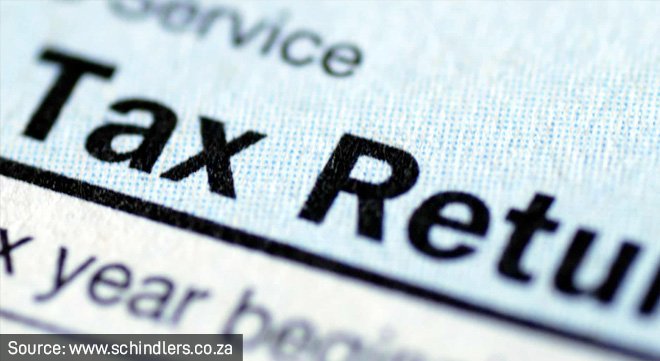As the tax filing season for individuals opens today, 21 July, the South African Revenue Service is warning taxpayers to remain vigilant and protect their personal information amid a rise in scams targeting them.
The auto-assessment period, which ran from 7 to 20 July, has concluded. The official filing window for individual taxpayers via eFiling and the SARS MobiApp begins today and runs until 20 October. Provisional taxpayers can also file from 21 July to 19 January 2026.
SARS notes that most online submissions receive assessment outcomes within five seconds if there are no issues.
Despite this efficiency, SARS urges taxpayers to be cautious.
“There have been many attempts by scammers to defraud taxpayers. Taxpayers are reminded that SARS will never ask taxpayers to use any link to engage with it. Taxpayers must protect their eFiling log-in details and use only registered tax practitioners,” the agency said.
Scams started as early as January this year, with fraudsters sending fake refund letters bearing a SARS masthead. One such letter claimed taxpayers were eligible for a refund of R3 829.28 and instructed them to log in via a provided link to verify banking details and complete the refund process. The letter warned the refund would be available for only seven days.
Other scams are fake notices of outstanding tax debts demanding immediate payment to avoid legal action. One message stated, “Non-compliance, whether intentional or accidental, is a punishable offence and may result in fines or imprisonment of up to two years upon conviction.”
A particularly common scam involves fear tactics, with messages claiming SARS has issued a “letter of demand” requiring urgent attention.
One such message reads: “SARS have issued the attached Letter of Demand which requires your urgent attention. Court summons and blacklisting imminent: If this is not attended to within the next 48hours.”
There is also a customs scam where fraudsters impersonate SARS Customs officials, calling taxpayers to demand payments for releasing allegedly detained parcels. These callers use personal information, including names and identity numbers, to intimidate recipients by threatening imprisonment for possession of illegal goods. The call is sometimes transferred to a fake government line.
SARS advises: “People are advised to end the call immediately. If they continue with the call, the fraudsters will undoubtedly use scare tactics to further phish and bribe them. SARS Customs will not call people to request any of this information. If a client has ordered or sent a parcel, the company that handled the initial transaction will engage with their client.”
Information on importing and exporting is available on the SARS website.
SMS scams are also on the rise. Before the auto-assessment period began, taxpayers received fraudulent SMS messages claiming they had been assessed and could claim refunds as high as R68 652 by clicking a link.
Social media platforms such as TikTok have not been spared either.
SARS cautions: “Be cautious of anyone claiming they can change the outcome of your auto assessment. If you don’t agree with the auto-assessment, submit your tax return on SARS eFiling or the MobiApp.”
Auto assessments
While scammers exploit technology to trick taxpayers, SARS is also harnessing it to simplify and improve the tax process. SARS shared that its journey to build a smart, modern tax system – powered by artificial intelligence, machine learning, and data science – is starting to pay off.
This year, 5.8 million taxpayers received auto assessments, up from 5 million in 2024.
“Importantly, 99.6% of auto assessments issued to date have remained unchanged by taxpayers. Equally impressive is that R10.6 billion in refunds due to taxpayers have already been paid within 72 hours,” SARS stated.
With auto assessments, SARS uses data from third-party providers to automatically assess taxpayers, who do not have to take any action unless they need to update their returns with missing or new information. This can be done via eFiling or the SARS Mobi App.
Since the auto assessment roll-out, more than 2.1 million taxpayers have engaged with SARS through digital channels. Of these, 1.1 million used the SARS Online Query System, 707 000 interacted via WhatsApp, and 290 000 communicated with the Lwazi Chat Bot. Overall, over 10.2 million unique users have accessed SARS through eFiling or the Mobi App since 4 July.
SARS Commissioner Edward Kieswetter expressed satisfaction with the impact of auto assessment, calling it a “game changer” that makes tax compliance easier. He said SARS is “working hard to give taxpayers the best service, where ‘tax just happens’.” He highlighted how improved digital platforms save taxpayers time and reduce the need to visit SARS service centres.
“Ultimately, our aim is to make the best service to be no service at all. As we start with filing season for those not auto assessed, from Monday, 21 July, I encourage taxpayers rather to use our digital channels than come queue at our service centres,” Kieswetter said.
Taxpayers can access SARS services through various channels:
- SARS website: sars.gov.za (click on the “Individuals” tab)
- SARS Online Query System (SOQS): https://tools.sars.gov.za/soqs
- SARS WhatsApp: send “Hi” or “Hello” to 0800 117 277
- AI Virtual Assistant: available 24/7 on the SARS website
- Dial 1347277# for SARS services
- SARS YouTube: @sarstax for how-to videos
For information on the latest scams, visit www.sars.gov.za. To report phishing or request information, email phishing@sars.gov.za.




